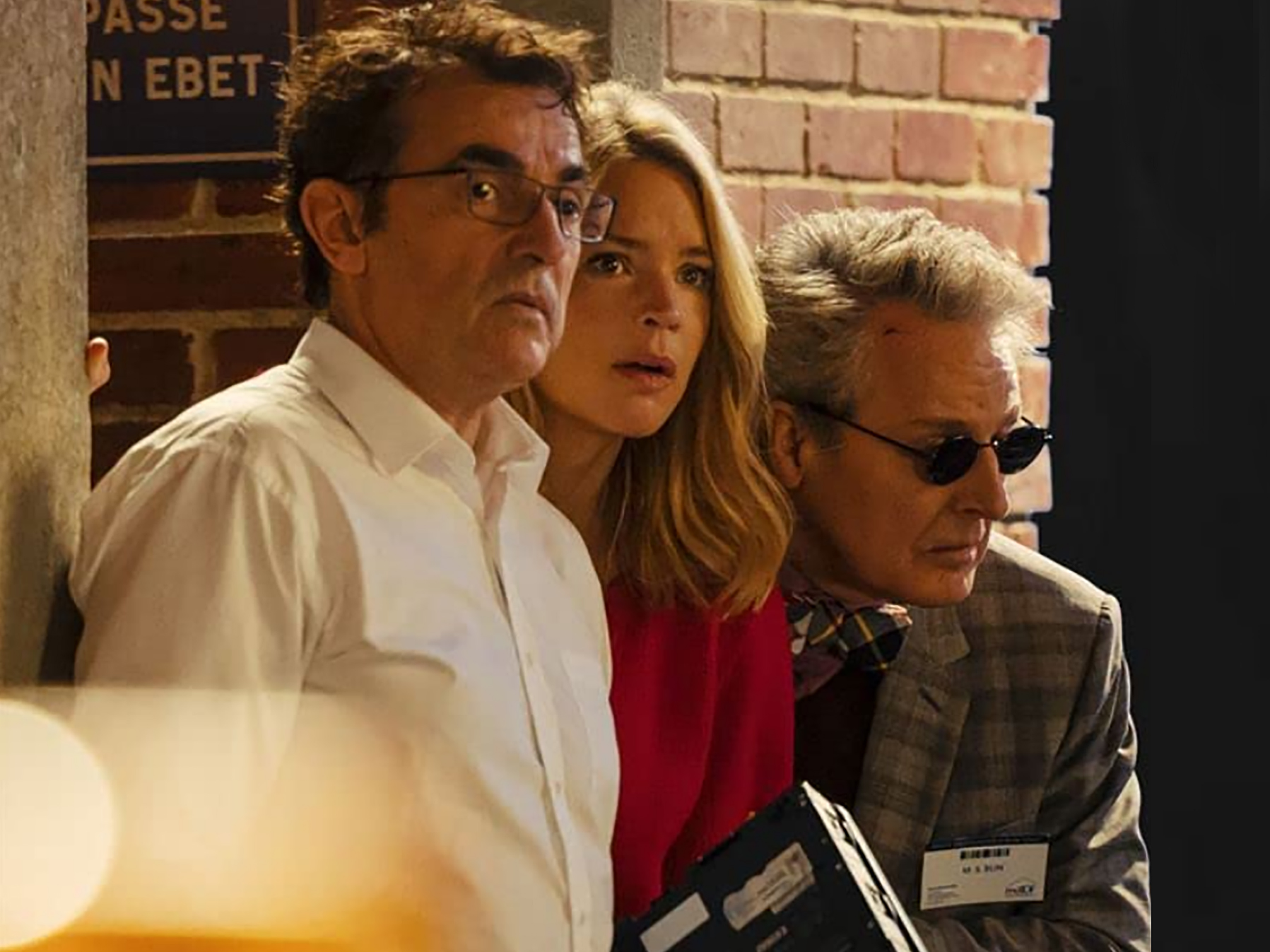
- Golden Globe Awards
Bye Bye Morons (France)
Recently diagnosed with a terminal illness, forty-something hairdresser Suze Trappet (Virginie Efira) decides to track down the son she abandoned when she was fifteen years old. While she is attending an appointment at a government agency where she faces the typical hurdles of French bureaucracy, a depressed IT security expert attempts to shoot himself in the office next door, missing the mark, and injuring instead the government clerk Suze is so unsuccessfully trying to deal with. Panic ensues and soon Suze and security expert JB (Albert Dupontel, who also wrote and directed the film) are on the run from the police, embarking on a madcap journey to track down her child, with the help of a blind archivist…
In his seventh film as a director, Dupontel (Nine Months Stretch, See You Up There), once again explores the now-familiar fertile terrain that has become his trademark over his twenty-five-year career – a mixture of darkness and humor, black comedy and tragedy, with a plot set at a whirlwind pace, resulting in wild antics with often absurdist effects and acerbic undertones.
“I feel I am something of a limited author,” he admits. “I always do the same things and the worst part is that I work so hard at it! For this film, I was looking to show archetypes of people who suffer in society – a way to show the difficulty of loving oneself in a repressive and anxiety-provoking world where we are very connected but strangely still very lonely. I asked myself how it would be if a woman who wants to live but is unable to, met someone who can live but doesn’t want to anymore. These are two opposing views. I was haunted by something composer Maurice Ravel said: There is no grandeur without sadness. And that is what I wanted to express through my characters.”
His approach to a film usually starts with “the idea of a specific emotion that I try to reproduce through plot. I am helped by the camera, the actors, the music, the lighting. You can choose to present reality in a way that is brutal or full-on, like Ken Loach. I choose to express it in terms of a fable because I feel more comfortable presenting an imaginary world than the reality. The subject matter can be heavy, but my ambition is to make the audience transport themselves.”
He adds, half-seriously, that he considers Bye Bye Morons, “a collateral damage to (Terry Gilliam’s) Brazil,” explaining that “I was 20 years old when it came out and I must have seen it three times a week. It had all my nightmares and dreams in it. I was gobsmacked by its virtuosity, the emotion, the speech pattern, the vision.” Spoiler alert: Gilliam has a cameo in the film – the Monty Python alum being a longtime fan of Dupontel.
In addition to the obvious entertainment factor, Dupontel concedes there might be another element to his film. “If showing people who suffer in a very selfish and aggressive world sounds political, then yes, I am making a political statement. Think of Chaplin, the greatest political filmmaker in my mind, or Georges Simenon, a writer I adore, who wrote about ordinary people facing a world that was not created for them but for and by the ruling classes. I have so much compassion for the human race.”
At 57, this longtime nonconformist and maverick still questions the elusive meaning of life. “To be an artist is to try to elevate the level of consciousness, to leave behind a bit of one’s understanding, and to say, ‘Here’s how I see the world.’”
Currently a smash at the French box-office, Bye Bye Morons also won 7 César Awards last March – thereby comforting Dupontel’s status as one of the most popular and commercially successful French directors today.